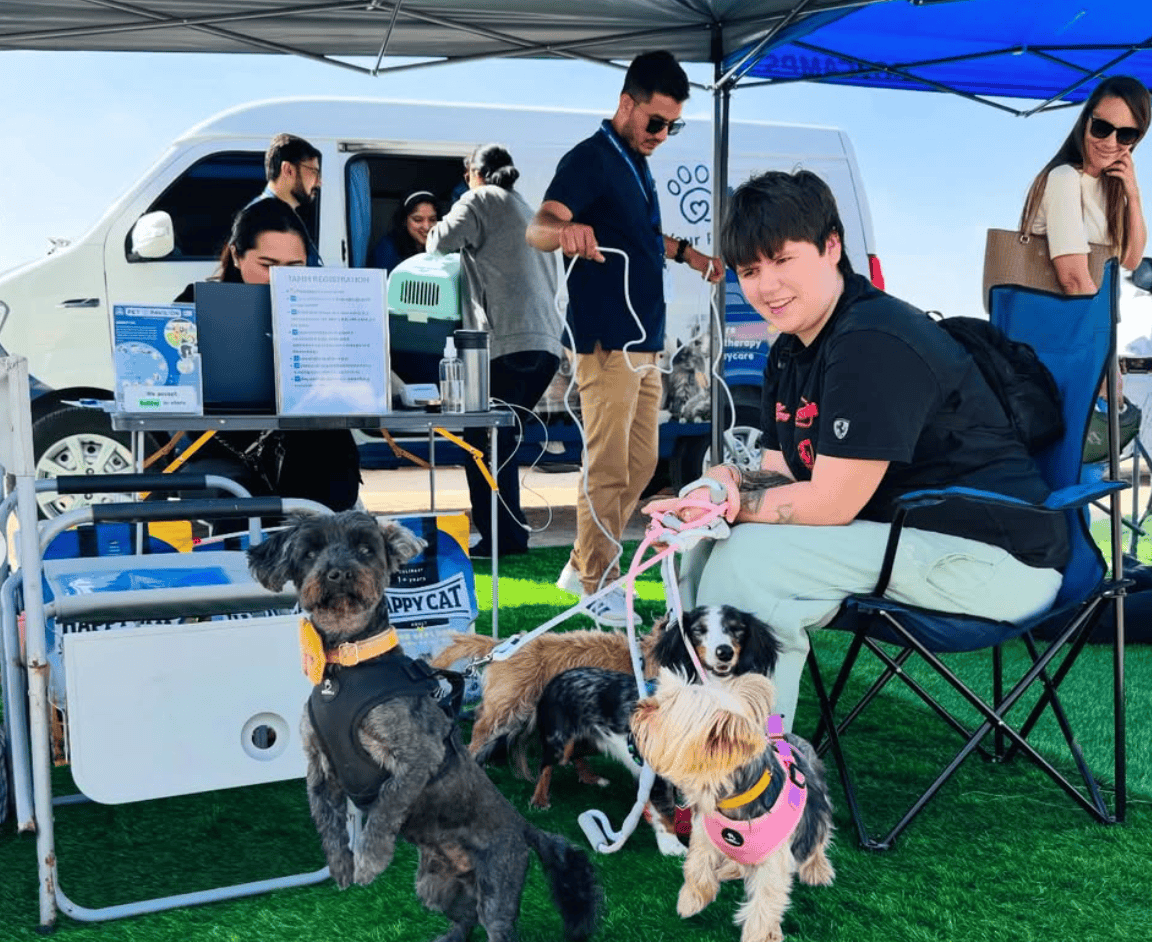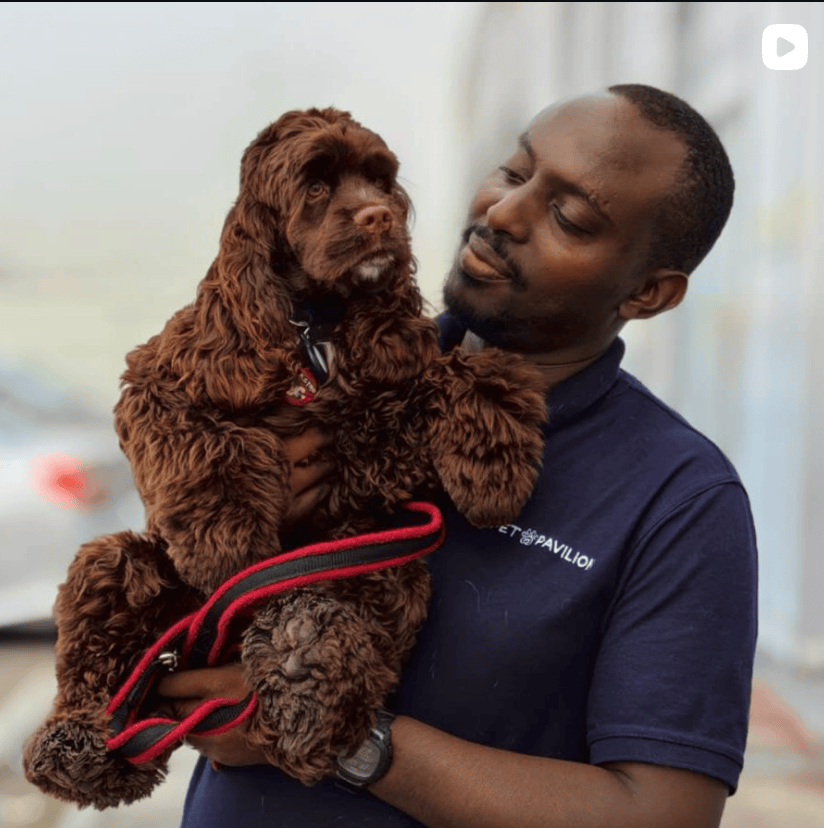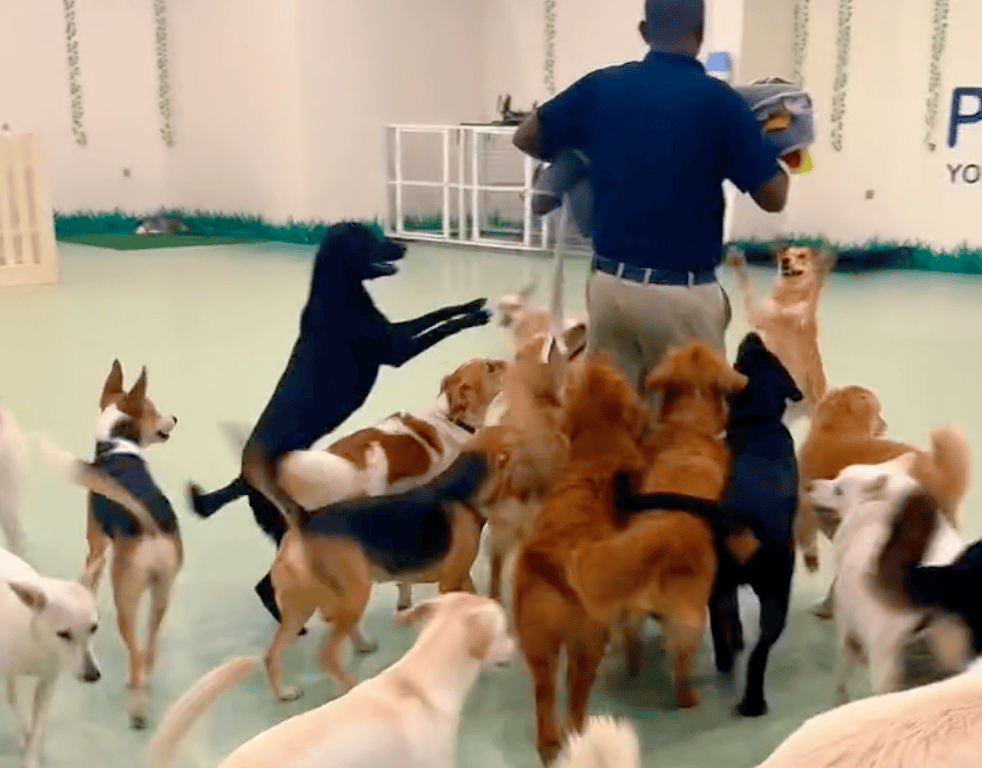Why Does My Dog Walk Around in Circles?

Does your pup resemble a furry tornado before settling down or doing their business?
You're not alone! Many dog owners witness their canine companions engaging in circular motions, leaving them wondering – is this normal, or should I be worried?
The answer, like always with our furry friends, isn't always straightforward.
Circling can be perfectly normal, a playful expression, or a sign of something deeper.
Let's unravel the mystery behind your dog's pirouettes!
Reasons for the Whirls
- Marking Territory: Some dogs, especially when unspayed females preparing for birth, circle before lying down to claim their spot. It's their way of saying, "This cozy spot is mine, paws off!"
- Nesting Instinct: Ancestral memories kick in! Spinning might mimic their wild counterparts creating comfortable sleeping areas by flattening grass or dislodging potential threats.
- Playful Energy: Just like toddlers twirling for fun, dogs sometimes spin simply because they're happy and excited. Their joyful dance might even become a learned trick for treats!
- Magnetism in Action: Believe it or not, a 2013 study suggests some dogs align themselves with the Earth's magnetic field before doing their business. So, your dog might be a mini Magneto!
Underlying Issues
Unfortunately, sometimes circling can indicate deeper problems.
This could include:
- Obsessive-compulsive disorder (OCD): If repetitive spinning soothes their anxiety, OCD might be at play.
- Seizures or epilepsy: Circling can be a post-seizure symptom. Keep an eye out for additional neurological signs.
- Cognitive dysfunction: Senior dogs with dementia might show disorientation and wander aimlessly, circling being one behavior.
- Inner ear infections: Discomfort and pain can cause circling. Shaking their head while spinning further hints at this issue.
- Balance issues: Vestibular disease, affecting balance, can manifest as circling. Look for stumbling, staggering, and other related symptoms.
- Cushing's syndrome: This hormonal imbalance can lead to behavioral changes, including circling.
When to See a Vet?
While occasional circling around bedtime or potty time might be normal,
consult your vet if it's:
- Excessive or persistent
- Accompanied by other concerning symptoms
- A sudden change in behavior
Treatment Solutions
The treatment depends on the underlying cause. Ear infections might need cleaning, while OCD could require training and medication. Consult your vet for a diagnosis and tailored treatment plan.
Remember
Most often, circling is simply your dog's unique way of expressing themselves.
However, vigilance is crucial. By understanding the potential reasons and seeking help when needed, you can ensure your furry friend's well-being and continue enjoying their adorable, albeit sometimes puzzling, antics!


Schedule your appointment today
Book My Appointment







